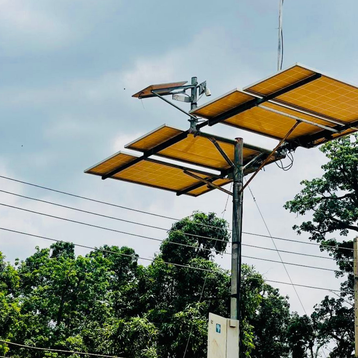SES has launched its O3b mPower satellite connectivity service.
The company this week announced it is now deploying O3b mPower services worldwide.
The first six of 13 planned satellites of SES’ second-generation software-enabled satellite system are operating at medium Earth orbit (MEO) or 8,000km.
SES will be introducing services in the coming months to O3b mPower customers to deliver reliable connectivity services ranging from tens of Mbps to multiple gigabits per second.
The launch of the next two O3b mPower satellites is expected in late 2024.
“We are very excited that O3b mPower is now ready to serve our customers around the world. Over the last few years, our SES team, along with our technology partners across space and ground segments, have worked tirelessly to bring our O3b mPower system online. I’m proud to say that all the core infrastructure is deployed, tested, and ready on a global basis,” said Adel Al-Saleh, CEO of SES.
“The demand for O3b mPower solutions is very high, and this moment has been long-awaited by our customers. Over the coming weeks, we will work with our mobility, government, enterprise, and cloud customers on O3b mPower onboarding plans. We’re eager to empower their operations with reliable, high-performance, and secure services.”
O3b mPower was originally announced in 2017, with the first Boeing-built BSS-702X satellites launched by SpaceX in December 2022. Each 1,700kg Ka-band unit can provide up to 5,000 beams per satellite, providing from 50Mbps up to 10Gbps. The service was delayed several times; it was previously set to go live in early 2023 and pushed back to Q3 and then the end of the year, before being pushed out to 2024.
The fleet was originally set to comprise 11 satellites, but two more were added after the Boeing-made machines were found to be facing power issues that would “significantly” shorten the first four machines’ lifespans. Upgrades to the rest of the fleet delayed the launch of the network.
In other recent satellite news:
– Iridium’s CEO Matthew Desch thinks the company’s stock is undervalued and should be thought of more like a digital infrastructure company equivalent to cell towers or data centers.
“When considering measures like free cash flow yield and conversion, we believe that Iridium continues to stack up quite well against the tower sector and data centers, some of which trade at twice our enterprise value to OEBITDA multiple,” Desch said during the company’s most recent quarterly earnings call.
“We believe our competitive dynamics are also similar to these infrastructure companies and that we occupy a unique business space and have strong visibility to future growth. As such, we believe that the underlying strength and growth of our business should be rewarded with a higher valuation.”
Iridium reported first-quarter total revenue of $203.9 million; net income was $19.7m, and operational EBITDA was $115m.
At time of writing, Iridium’s stock is valued at $29.28 a share, down from a high of $67.26 last year. The company has a current market cap of $3.56 billion.
– Direct-to-device satellite company Lynk Global has signed a five-year contract with the Defense Information Systems Agency (DISA) to provide commercial sat2phone services to the US Department of Defense (DoD), the Department of Homeland Security (DHS), and other US government agencies.
Services available under the contract include SMS text messaging, emergency cell broadcast alerts, and weather & information broadcast services. DISA has the option to extend the contract by another five years.
– Yahsat’s Thuraya-3 communications satellite which provided services over Asia, is having issues. The machine suffered an outage of its communication payload on April 15th. The machine is still under control but the company hasn’t disclosed the nature of the issue. The Boeing-made L-Band satellite was launched in 2008 with a 15-year planned design life.
Last year reports surfaced that Yahsat’s Al Yah 3 satellite lost one of its two Power Processing Units (PPUs).
– Telco Africa Mobile Networks’ first Starlink-connected base stations have gone live in Nigeria.
– Starlink has signed an MoU with the Indonesian Internet Service Providers Association (APJII) to provide Internet access in Indonesia. The company is currently waiting on regulatory approval in the country.
– Thailand’s Mu Space and RBC Signals have signed an MoU to explore ground station opportunities in Thailand and across Southeast Asia.
– The US Space Force has reiterated its desire for a “commercial space reserve” that would allow the military to quickly tap private satellite operators during a conflict.








